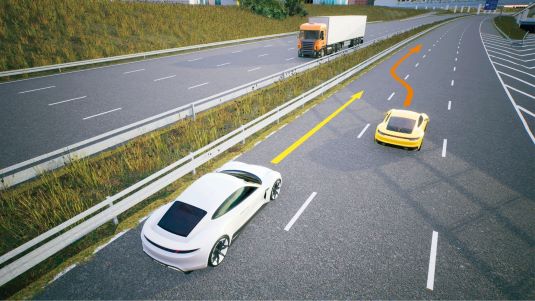
Automated driving simulated and varied by AVEAS
London, 26 October 2023, (Oilandgaspress) – Porsche Engineering is working on automated detection of critical traffic situations from sensor data using AI and storing the situations in a database. The route models and traffic situations generated in this way are also varied in order to generate more test cases for virtual validation. The autonomously driving vehicle of tomorrow must also be able to react safely at critical moments, which is why Porsche Engineering is already playing through such scenarios intensively in simulations today. When doing so, the engineers specifically increase criticality, for example by reducing the distance between vehicles. “We are building a complete catalog of critical scenarios that enable us to validate driver assistance systems and functions for highly automated driving,” explain Dr. Joachim Schaper, Head of AI and Big Data at Porsche Engineering and Tille Karoline Rupp, Responsible for Simulation at Porsche Engineering.
The virtual tests are part of the AVEAS research project (the acronym comes from the German phrase Absicherungsrelevante Verkehrssituationen erheben, analysieren, simulieren, which means ‘collecting, analyzing, simulating traffic situations relevant to validation’), in which, in addition to Porsche Engineering, a further 20 partners are involved, including several Fraunhofer institutes and the Karlsruhe company understand.ai.
Information Source: Read More
Energy ,Petrol , Electric Power , Natural Gas , Oil , Climate , Renewable , Wind , EV , LPG , Solar , Electric , Electric Vehicles, Hydrogen, Oil Price ,Crude Oil, Supply, Biomass , Sustainability,

